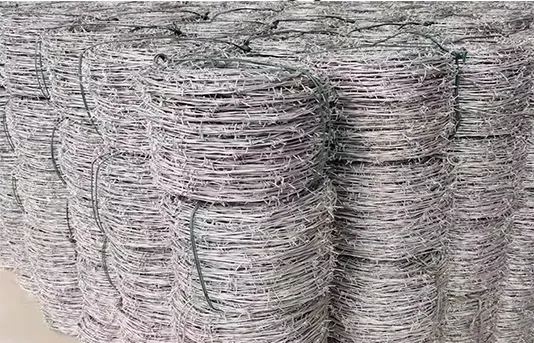
Different Varieties and Uses of Barbed Wire in Various Applications
The Various Types of Barbed Wire and Their Applications
Barbed wire has been an essential fencing solution for over a century, primarily used for keeping livestock contained, marking property boundaries, and enhancing security. Developed in the late 19th century, it proved to be a cost-effective and efficient way to protect fields and deter intruders. Over the years, numerous types of barbed wire have emerged, each designed for specific purposes. In this article, we will explore the various types of barbed wire and their respective applications.
1. Standard Barbed Wire
Standard barbed wire is the most common type and consists of two strands of wire twisted together with barbs spaced along the length. Typically made from steel, this type is designed for general fencing, particularly in agricultural settings. It effectively confines livestock while providing a barrier against wildlife. Several variations exist, including different barb spacing and wire gauges, allowing farmers to choose the best type based on their needs.
2. High-Tensile Barbed Wire
High-tensile barbed wire is made from a stronger steel alloy and is designed to withstand greater tension and stress. This type often has a smaller diameter than standard barbed wire, providing similar levels of strength while being lighter and easier to handle. High-tensile barbed wire naturally resists sagging and rusting, making it ideal for long-distance fencing applications, such as large farm properties or ranches. Its durability ensures longevity; therefore, it requires less frequent replacement.
3
. Electric Barbed WireElectric barbed wire combines traditional barbed wire with electric fencing technology. Conducting electricity, this type of barbed wire delivers a mild shock to deter animals and intruders from attempting to breach the fence. It is particularly effective in agricultural settings, where farmers need to securely contain cattle or other livestock. Electric barbed wire can be combined with non-lethal deterrents to ensure humane treatment of animals while still maintaining security.
types of barbed wire

4. Razor Wire
Razor wire is a more security-focused variant, featuring sharp blades that pose significant dangers to anyone attempting to climb over or breach it. This type of wire is commonly used in high-security areas such as prisons, military bases, and industrial sites. Unlike traditional barbed wire, razor wire is designed to be much more intimidating and challenging to navigate. Its design features sharp, razor-like edges on the coils, making it an effective deterrent against unauthorized access. However, it is important to note that razor wire is not suitable for agricultural applications due to safety concerns.
5. Vinyl Coated Barbed Wire
Vinyl-coated barbed wire provides an additional layer of protection against rust and corrosion. The vinyl coating enhances the aesthetic appeal of the wire, making it suitable for residential properties and decorative fencing. This type retains the general functionality of standard barbed wire while improving durability and resistance to environmental elements. Vinyl-coated barbed wire is a popular choice for homeowners and small farms, as it combines functionality with a refined appearance.
6. Sheep Barb Wire
Sheep barb wire is specially designed for keeping sheep contained within a pasture. Its barbs are smaller and spaced closer together compared to standard barbed wire, minimizing the risk of injury to the sheep. This type of wire is designed with the unique needs of sheep farming in mind and is effective in creating a secure yet safe fencing solution for these animals.
Conclusion
Barbed wire remains a vital component for various fencing needs, ranging from agricultural to security applications. With the wide variety of types available, users can select the most suitable option based on their specific requirements. As technology evolves, new materials and designs continue to emerge, enhancing the functionality and appeal of barbed wire. Ultimately, whether used for safeguarding livestock, demarcating property lines, or enhancing security, barbed wire will continue to be an invaluable tool in the world of fencing for many years to come.
-
Wire Mesh for Every Need: A Practical SolutionNewsJul.25,2025
-
Steel Fences: Durable, Secure, and Stylish OptionsNewsJul.25,2025
-
Roll Top Fencing: A Smart Solution for Safety and SecurityNewsJul.25,2025
-
Cattle Farm Fencing Solutions for Maximum SecurityNewsJul.25,2025
-
Affordable Iron Binding Wire SolutionsNewsJul.25,2025
-
Affordable Galvanized Wire SolutionsNewsJul.25,2025
-
Wire Hanger Recycling IdeasNewsJul.25,2025








